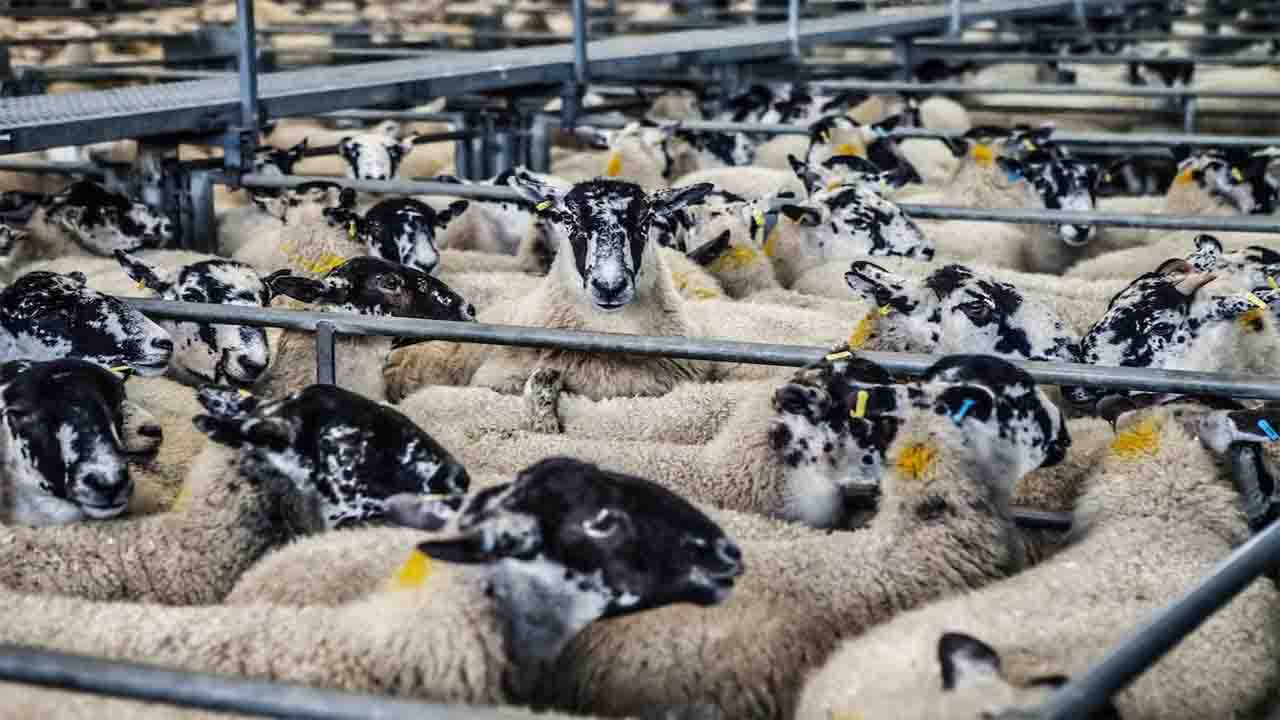Australia (commonwealth) _ The Australian government said on Monday, that it had turned down a livestock exporter’s proposal to send a ship to Israel that would have carried 1,500 cattle and almost 14,000 sheep on a month-long trip across Africa.
Animal rights activists have expressed outrage over the animals’ treatment, comparing it to torture, because they had been on board the ship for a month.
On January 5, the MV Bahijah departed from Australia to Israel. However, the Australian government ordered the ship to return home after it abandoned a passage via the Red Sea because of the potential of assault from Yemen’s Houthi militia.
The ship was awaiting the government’s decision to allow it to return to the sea off the coast of Western Australia for the last week. A number of hundred cattle have been offloaded recently, however any animals that disembark in Australia are need to be quarantined due to biosecurity regulations.
The agricultural ministry stated that it was unsatisfied with the exporter’s application’s compliance with Israeli or Australian regulatory standards or the assurance that the animals’ welfare would be maintained throughout transit.
The statement said the animals were still in good health but did not provide any further information about the choice. It stated, “The exporter must make commercial decisions regarding the next steps for the livestock onboard the vessel.” “The ministry’s department is prepared to evaluate any upcoming applications.”
Australia exports a lot of live animals; in the previous year, it shipped over 500,000 sheep and 500,000 cattle. In the upcoming years, the government intends to outlaw the export of live sheep. Last Monday, a second cattle ship departing Australia headed for the Red Sea port of Aqaba in Jordan with some 60,000 animals on board.
The exporter of the animals on the Bahijah, Bassem Dabbah, was not reachable by Reuters. Requests for feedback from Korkyra Shipping, the ship’s management, were not answered.
Due to the possibility of an assault off Yemen, a ship carrying 16,000 sheep and cows turned around in the Red Sea. On Friday, the exporter attempted to discharge at least part of the animals, leaving the ship trapped in a heatwave at a port in Australia to be placed for quarantine.
Tens of thousands of animals were being transported by another ship from Australia, and it was headed for a Red Sea port in Jordan. In case it couldn’t get clearance to enter the waterway, it was supposed to dump the animals in the Gulf.
Attacks on vessels by Yemen’s Houthi rebels have made passage across the Red Sea dangerous and hampered international trade.
On January 5, the MV Bahijah sailed for Israel with about 14,000 sheep and 2,000 animals, but the Australian government ordered her to return home after she was forced to turn around owing to the danger of assault. During a summer heatwave, it landed in Perth, Western Australia, on Monday.
The animals must be quarantined before they may disembark due to biosecurity regulations. The exporter, the Israeli company Bassem Dabbah, has applied to Australia’s agricultural ministry to offload some animals and send the others back to sea for a roughly 33-day journey to Israel via the circumnavigation of Africa. The ministry said it is currently reviewing the proposal.
Although officials believe the animals are in fair condition, several lawmakers and animal rights groups have urged for Canberra to move forward with a proposed ban on live sheep exports, claiming the animals’ predicament amounts to harsh maltreatment.
The agricultural ministry declared that “Australia’s biosecurity and the health and welfare of the livestock onboard are our highest priorities.”
Animal advocacy organizations Let the Animals Live and Animals Now in Israel said that they have started legal action to stop the importation of the Bahijah’s animals into Israel. A request for response was not immediately answered by the Israeli authorities.
According to ship monitoring data from Refinitiv Eikon, another livestock carrier, the Jawan, sailed on Thursday from Australia for the port of Aqaba in Jordan. About 60,000 animals—most or all of them sheep—are on board, according to John Hassell, CEO of farm organization WAFarmers.
The Australian minister of Agriculture stated that it had given the vessel permission to sail with a backup plan that forbade it from entering the Red Sea unless the department (minister) granted permission to do so 72 hours in advance.
According to a person with knowledge of the situation, if the ship is unable to enter the Red Sea, it will unload in the Gulf and the animals will be transported by vehicle to Jordan.








